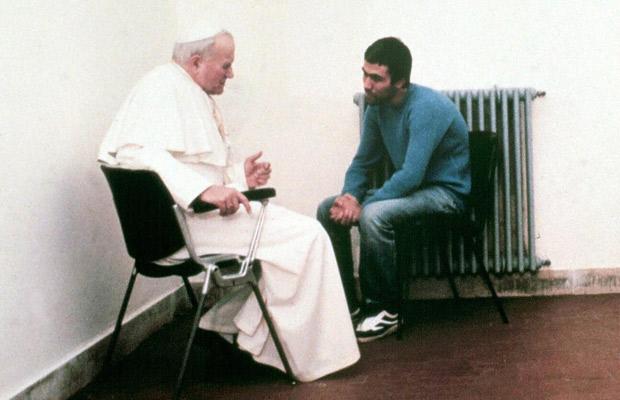
Unresolved feelings of guilt can have terribly damaging effects: self-hatred, anxiety, despair, even suicide. This holds true not only for individuals but for whole societies. The French writer Pascal Bruckner writes of Europe’s guilty conscience: “Brooding over its past crimes (slavery, imperialism, fascism, communism), Europe sees its history as a series of murders and depredations that culminated in two global conflicts.” It appears to have searched its post-Christian soul and found nothing redeemable. Perhaps one sign of its self-loathing is the uniformly low birthrates which, among non-immigrants, average less than 1.5 children per female. A society bearing more dogs on leashes than children in strollers is in terminal decline.
Catholics should appreciate the irony. Our “enlightened” secularist culture misunderstands the Catholic conscience for what it likes to call (derisively) “Catholic guilt,” and yet it’s the culture that’s condemning itself to extinction. Western ideas of human rights and freedom are grounded in the Christian teaching that every human being is the object of God’s eternal love and is created to enjoy the freedom that comes only from communion with the Blessed Trinity, and in the Jewish understanding of the dignity of every person as created in the divine image. Having rejected those beliefs, modern culture lives for no higher cause than the comforts of affluence, recognizes no sin beyond “intolerance,” and is unconcerned with the question of salvation. A society that lacks moral consensus and equates freedom with license is ill-equipped to withstand the dangerous and dehumanizing fanaticisms, be they religious or secular, now filling the void left by apostasy from the living and true God. If demographic suicide doesn’t finish it off, depravity or jihad will.
But the end of Western civilization wouldn’t spell the end of the Church. Catholicism can survive in any culture. In the confessionals of our churches, countless souls have been exposed to mercy and restored to God’s friendship. Mindful of eternity and willing to acknowledge something greater than themselves, they had a reason to live — and breed — and die.
Guilt is good when it’s the first step toward healing. The mature person doesn’t assign blame to others, but assumes responsibility for his actions. King David committed adultery with Bathsheba, the wife of his best and most loyal soldier, Uriah the Hittite, and then arranged for Uriah to be killed in battle (2 Sam 11:1-27). The penitent woman whom tradition identifies as Mary Magdalene was probably a prostitute (Luke simply calls her “sinful” [Lk 7:37]). Both took responsibility for their sins and repented.
Some people believe their sins are unforgivable. There is no sin so horrible that we mortals can commit which our infinite God will not forgive, provided we repent and seek forgiveness. Sacramental confession is the ordinary means by which our loving Savior forgives our post-baptismal sins. Often people will put off going to confession. Perhaps fear or embarrassment keeps them away. Days become weeks, weeks become months, months become years. Then, unexpectedly perhaps, death — and the judgment that immediately follows. What’s a moment of embarrassment compared to the eternity of heaven or of hell?
In the Mass, after the Lord’s Prayer, the priest prays that we may be kept “free from sin and safe from all distress.” Forgiveness, given and received, is the antidote to the stigma of guilt. It lies at the heart of what the Church owes to people in the predominantly secular culture: the proclamation of the saving love of God in Jesus Christ and joyful evidence of new life in Him.


